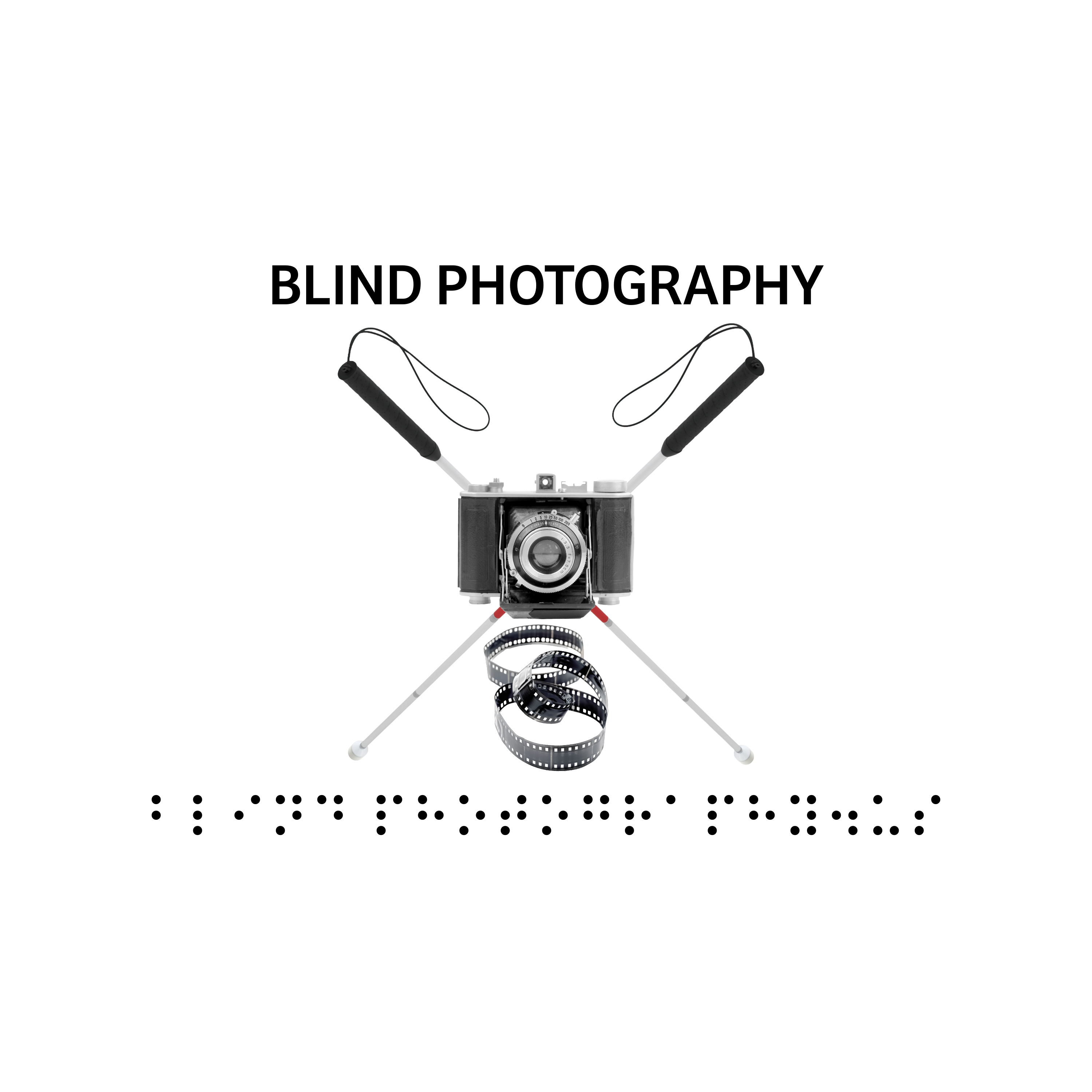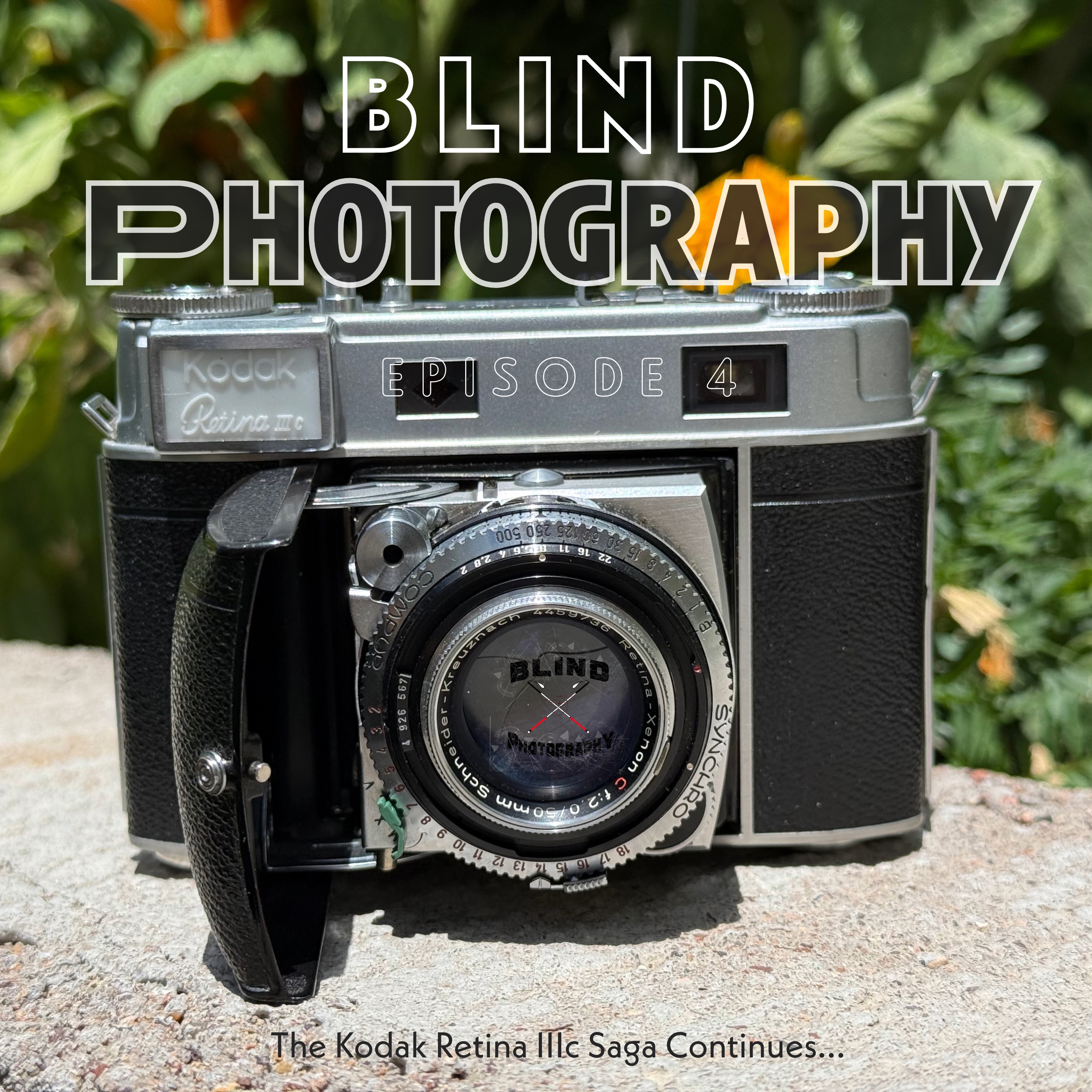Blind Photography

Blind Photography
Podcast Description
Join me on this wonderfully crazy journey, where the unique experience of blindness intersects with a fervent and passionate love for the art of photography. I have been on the road to blindness for a few years. Each day is an adventure. Join me, won't you?
Podcast Insights
Content Themes
The podcast focuses on the unique challenges and experiences of being a blind photographer, with episodes touching on topics such as acquiring vintage cameras, personal life updates related to vision loss, and reflections on memorable photography trips. For instance, Episode 3 dives into the journey of purchasing a Kodak Retina IIIc, while Episode 2 shares insights about navigating life in Arizona as a legally blind individual and reflects on family dynamics.

Join me on this wonderfully crazy journey, where the unique experience of blindness intersects with a fervent and passionate love for the art of photography. I have been on the road to blindness for a few years. Each day is an adventure. Join me, won’t you?
Blind Photography Podcast: Episode 4 Notes:: The Kodak Retina IIIc Saga and Comparing Classic Cameras as a Visually Impaired Photographer
Duration: 30 minutes
Host: Jefferson Davis
Episode Summary: In this episode, we dive into the trials and triumphs of working with vintage cameras as a visually impaired photographer. The spotlight is on the Kodak Retina IIIc, where I share my journey of combining two units to create one functional camera. I also compare the Retina series to the Voigtlander IIa, weighing their pros and cons for visually impaired users. Plus, a surprising moment at the park when a local resident’s question catches me off guard.
Key Topics:
- The Kodak Retina IIIc Saga
- The challenge: Working with two Kodak Retina IIIc cameras to build one reliable unit.
- Insights into the repair process, including sourcing parts and troubleshooting vintage camera quirks.
- Why the Retina IIIc remains a beloved choice for film photography enthusiasts despite its complexities.
- Kodak Retina vs. Voigtlander IIa: A Visually Impaired Perspective
- Kodak Retina Series:
- Positives: Compact design, sharp Schneider-Kreuznach lenses, and reliable light meters (when functional), and built in rangefinder.
- Negatives: Fiddly controls, complex folding mechanism, and the cocking rack that seems to be their achilies heel.
- Voigtlander IIa:
- Positives: Intuitive controls, larger and brighter viewfinder, and robust build quality.
- Negatives: Less common lens options, no rangefinder, and no light meter.
- Accessibility considerations: How tactile feedback, button size, and viewfinder clarity impact usability for visually impaired photographers.
- Kodak Retina Series:
- Blindsided at the Park
- A lighthearted recounting of an unexpected question from a local resident while shooting at a park.
- Reflections on how public interactions shape the experience of photography as a visually impaired person.
- Tips for navigating curiosity and misconceptions with confidence and humor.
Call to Action:
- Subscribe: Never miss an episode—follow Blind Photography on your favorite podcast platform!
- Follow: Stay updated on social media for behind-the-scenes content and photography tips.
- Visit the Website: Head to [https://www.blindphotography.us/blog] for episode extras, gear reviews, and resources for visually impaired photographers.
Connect:
- Share your thoughts on this episode or your own photography experiences! Reach out via [Your Contact Info or Social Media Handles].
- Have a vintage camera story? Let us know for a chance to be featured in a future episode!

Disclaimer
This podcast’s information is provided for general reference and was obtained from publicly accessible sources. The Podcast Collaborative neither produces nor verifies the content, accuracy, or suitability of this podcast. Views and opinions belong solely to the podcast creators and guests.
For a complete disclaimer, please see our Full Disclaimer on the archive page. The Podcast Collaborative bears no responsibility for the podcast’s themes, language, or overall content. Listener discretion is advised. Read our Terms of Use and Privacy Policy for more details.